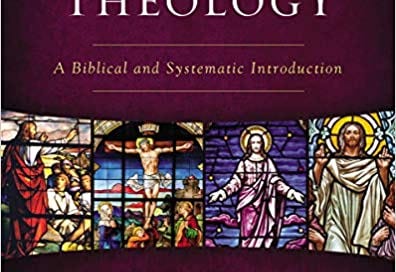Evangelical Theology first edition was a big success, I’ve received positive feedback from professors, pastors, and students from all over the world, it was quite heartwarming. I think people have genuinely appreciated an attempt at systematic theology that makes the gospel the center, boundary, and integrating point of theology, that discipleship is about being gospelized, an approach that tries to combine biblical and systematic perspectives, and a mixture of ancient and modern sources utilized throughout.
However, I had to admit in hindsight, that some sections were a bit weaker than others, there are a few things I wish I added, and a few things I wished I omitted. Certain aspects need to be updated and some parts refined.
So I embarked on a thorough and comprehensive update of the first volume. I cut 50, 000 words and wrote an additional 100, 000 words.
So what did I change or do differently:
– I explained why I kept the word “evangelical” even though it is used in such overtly political and even nebulous ways.
– The footnotes in the first edition were fairly white, male, and Calvinistic. So I have incorporated a lot more insights from female theologians (e.g. Beth Felker Jones), majority world scholars (especially from Asia), and tried to interact more with Wesleyan and Arminian perspectives. I learned some great things from Simon Chan, I was astounded by the theological depth of Susanna Wesley, I think Jacob Arminius gets it over John Calvin on autotheos, and it turns out that Shirley Guthrie is actually a dude. It is simply more diverse in the conversation partners from Dale Martin (postmodern marxist theologian) to Benedict XVI (Pope) to John Owen (English Puritan) to Sarah Coakley (modern Anglican theologian) to Amos Yong (Asian-American theologian) to Jonathan Edwards (New England Puritan) to James Cone (African-American theologian).
– I have extended the discussions about theological method and the Trinity. I really buff up those sections, giving more perspectives on different ways that theology is approached, and providing a thicker description of how the Trinity came to be a church doctrine.
– The periodic humour abounds and there is even the “Council of Nicaea Rap Battle”
– I have completely re-written the chapter on Anthropology. I pay attention to topics like the image of God and disability, what is “Christian identity,” plus more on the nature of sin and evil too.
– There are several additional sections, for example, in the discussion on God’s purpose and plan, I go beyond the usual covenantal vs. dispensational divide and include the kingdom-through-covenant view of Stephen Wellum and Peter Gentry.
– The chapter on Ecclesiology engages the subject of multi-site churches, where I conclude, “Dude, your church is a diocese and your senior pastor is basically a bishop.”
– Sadly, the discussion of sin no longer starts on p. 666!
As for what I am about, as I say in the introduction:
I intend in this volume to construct an evangelical theology, one soaked in Scripture, in deliberate dialogue with theologians of the past and present, with an ear to the door of current debates, in order to equip evangelical churches with a gospel-faith that seeks spiritual formation and missional direction. I hope this volume helps create a gospel culture in churches where the God of the gospel is worshiped and the mission of the triune God continues in the mission of the church.
Over at TGC, Trevin Wax has a great overview/review of the second edition . He carefully highlights what is different between the first and second edition and gets it very right.
I am quietly hoping and planning for a third edition in several years time.





Mr. Bird - thanks for your contribution. I like the fact that you included other perspectives on theology in the second addition (women, Asian, etc.). This is something that is sorely lacking in evangelical theology.
I look forward to perusing the third edition when it comes out. Congrats!